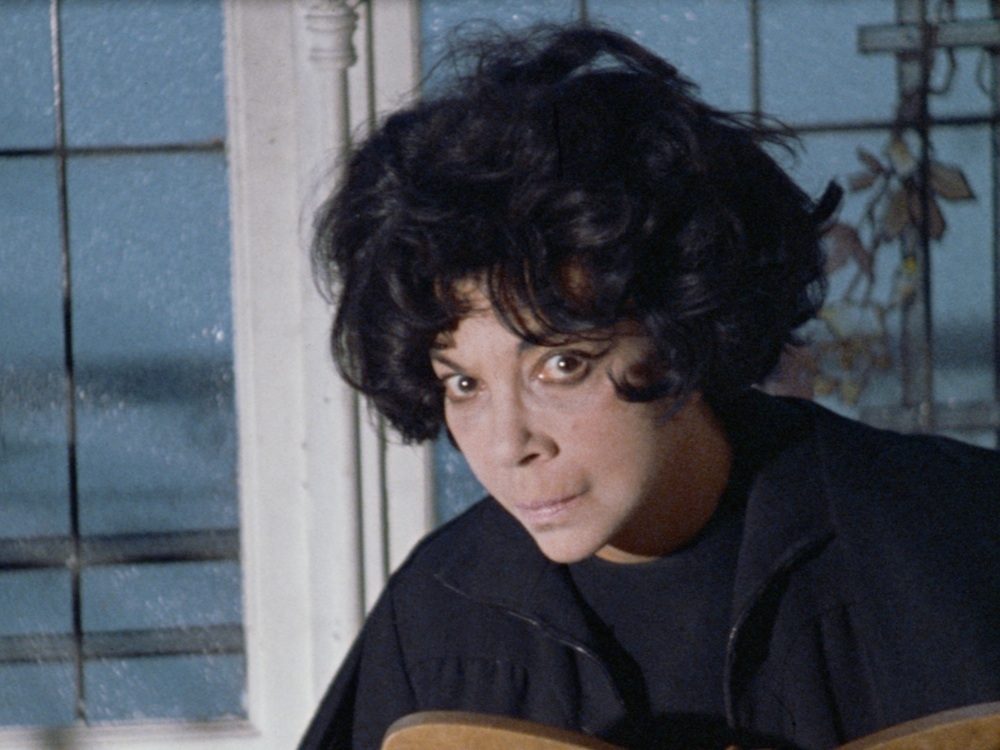Film as Film at Harvard Film Archive
Markopoulos season at Harvard Film Archive, Sep-Oct 2014
Gregory J. Markopoulos (1928 – 1992) was one of the most original filmmakers to emerge in post-war American cinema. His films, which often translated literary or mythological sources to a contemporary context, are celebrated for their extraordinary creativity, the sensuous use of colour and innovations in cinematic form. This latest instalment of HFA’s on-going retrospective sees the filmmaker at a critical point in his development – the moments of transition between the works that consolidated his reputation in the USA and those made following his move to Europe. It also presents his earliest films from the 1940s, including the trilogy Du sang, de la volupté et de la mort. Commencing with his first 16mm film, Psyche—which took as its source the unfinished novella by Pierre Louÿs—the trilogy is completed by Lysis and Charmides, both inspired by Platonic dialogues.
At the peak of his success in the mid-1960s, Markopoulos began filming The Illiac Passion, a long-planned version of Prometheus Bound. This ambitious project took three years to complete, during which time the direction of Markopoulos’ filmmaking had begun to shift from the more narrative interpretations of mythic themes toward portraiture and studies of landscapes and architecture. One of Markopoulos’ last literary adaptations and one of his last American films—filmed in Boston in 1967—was Himself as Herself,an exploration of androgyny loosely based on Balzac’s Séraphîta. In New York, he filmed thirty important art world figures for Galaxie, amongst them Jasper Johns, WH Auden, Susan Sontag and Allen Ginsberg. Its lapidary nature is constructed through the use of multiple superimpositions that were done in-camera at the moment of filming – a technique also explored in “films of place” such as Ming Green and Bliss.
In 1968, as a result of his growing disillusionment with the culture that had developed around avant-garde cinema, Markopoulos decided to leave the USA and spend the rest of his life in Europe with his partner Robert Beavers. There, he made plans for Temenos, a unique monographic archive for the preservation, presentation and study of his work. Born out of the desire for continuity between the production, presentation, and analysis of his films, Temenos proposes an ideal in which a projection space, the film copies, and the filmmaker’s writings and documentation can exist in close proximity.
This comprehensive resource was drawn upon to provide the material for Film as Film: The Collected Writings of Gregory J. Markopoulos, an indispensable new publication which brings together over 90 different texts written by the filmmaker between 1950 and 1992. In these essays, Markopoulos chronicles the burgeoning New American Cinema scene and responds to auteurs such as Dreyer, Bresson and Mitzoguchi. He also writes in detail on the genesis of his own films and the early work of Robert Beavers. The most individualistic and poetic texts are devoted to his aspirations for the medium of film, and the speculative project of Temenos.
To celebrate the publication, a discussion between its editor Mark Webber, the scholar P. Adams Sitney and filmmaker Robert Beavers will follow the screening of Gammelion, Markopoulos’ elegant film of the castle of Roccasinibalda, which employs an intricate system of fades to extend five minutes of footage to an hour of viewing time. This inventive technique, in which brief images appear amongst measures of black and clear frames, was a crucial step towards the structure his monumental, final work. Eniaios is represented in the season by Hagiographia II, in which the filmmaker returns to his Hellenic roots to film the Byzantine city of Mistra in the Peloponnese, and by Genius (a version of Faust featuring David Hockney, Leonore Fini, Daniel Henry Kahnweiler) and his 1975 portrait of the artists Gilbert and George.
(Mark Webber)
For further information on Markopoulos, please see the introduction to A Gregory Markopoulos Prelude, the previous season of his films at HFA in April 2014. Film as Film: The Collected Writings of Gregory J. Markopoulos, edited by Mark Webber with a foreword by P. Adams Sitney, is published by The Visible Press, London.
Joining Haden Guest as moderator for the conversation on Friday September 19 will be Panagiotis Roilos, George Seferis Professor of Modern Greek Studies and of Comparative Literature, Harvard University. The Friday night conversation is co-sponsored by the Mahindra Humanities Center’s Seminar on Modern Greek Literature and Culture.
Visit the calendar for details of each screening, or view the programme on the Harvard Film Archive website.


